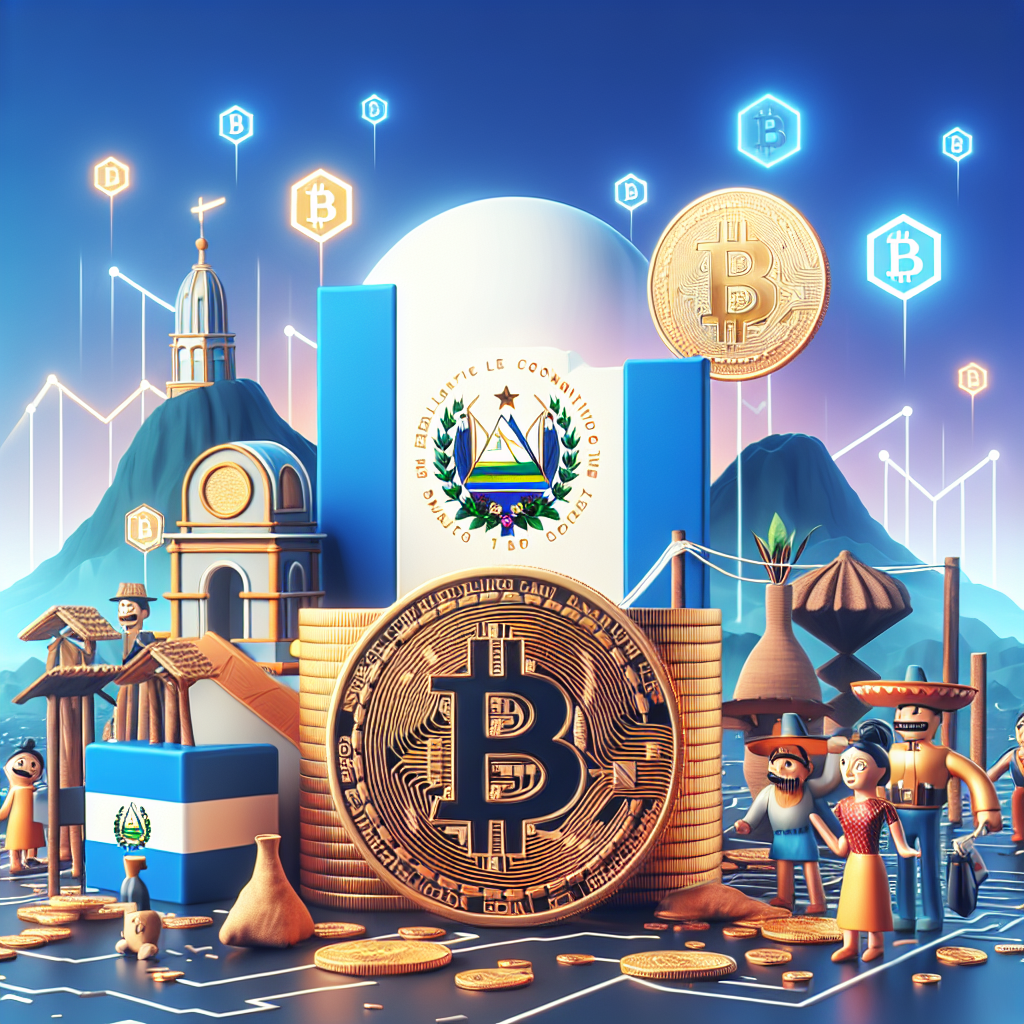Bitcoin
El Salvador’s Bitcoin Strategy: A New Era of Economic Commitment

El Salvador has recently emerged as a prominent player on the international stage, particularly in the realm of cryptocurrency. With its bold decision to adopt bitcoin as legal tender in 2021, the nation has transitioned into a case study for cryptocurrency advocates and skeptics alike. The latest developments indicate that El Salvador’s Bitcoin-centric policies are now integral to its diplomatic interactions, signaling a significant shift with potentially irreversible implications.
In recent engagements, President Nayib Bukele has leveraged the Bitcoin narrative to not only attract investments but also to forge strategic partnerships abroad. The country’s commitment to a Bitcoin-based economy has become a cornerstone of its foreign relations, making its national identity closely tied to its cryptocurrency initiatives. As Bukele confidently proclaims the benefits of this digital currency, it is evident that El Salvador aims to position itself as a leading voice in the global crypto discussion.
Observing El Salvador’s trajectory reveals an ambitious plan to revolutionize financial inclusivity. With a significant percentage of its population unbanked, the government has seen cryptocurrencies as a pathway to integrate more citizens into the financial system. This has the potential to facilitate remittances, enhance access to financial services, and stimulate economic growth. A recent study indicated that remittances, which account for about 20% of El Salvador’s GDP, could see enhanced efficiencies through digital currency channels.
However, the strategy’s upsides are not without considerable risks. The volatility of Bitcoin remains a critical concern. Prices can fluctuate wildly, with Bitcoin values experiencing swings of up to 60% within short periods. Such instability creates a challenging environment for businesses and individuals who may rely on digital currencies for daily transactions. Critics argue that this could put Salvadoran citizens at risk, especially those with limited financial literacy. Recent statistics reveal that nearly 70% of El Salvadorans are concerned about potential losses tied to Bitcoin investments.
In international forums, El Salvador has been vocal about its endeavors in the cryptocurrency domain. Participation in events like the Miami Bitcoin Conference underscores its aspiration to attract crypto-related investments and innovation. The government has proposed several initiatives, including establishing a Bitcoin training institute to educate citizens and foster a new generation of crypto-savvy entrepreneurs. By doing so, El Salvador hopes to fortify its position as a hub for blockchain technology and cryptocurrency development.
Despite the government’s optimism, the international community remains watchful. Financial institutions, including the International Monetary Fund (IMF), have expressed concerns over El Salvador’s Bitcoin policies. Investment firms are closely monitoring how the country manages its fiscal policies in the face of this digital currency commitment. The IMF previously cautioned that Bitcoin’s adoption could pose risks to financial stability and complicate economic recovery efforts.
El Salvador’s actions have inspired several other Latin American nations to explore cryptocurrency, but caution remains the predominant sentiment. Countries like Paraguay and Brazil have shown interest in regulatory frameworks for digital currencies but have yet to embrace Bitcoin as fully as El Salvador. This hesitation underscores the ongoing debate about the sustainability and practicality of cryptocurrency within national economies, particularly in regions with significant socio-economic challenges.
The adoption of Bitcoin by El Salvador not only reflects its internal ambitions but also plays into larger geopolitical trends. As nations grapple with the implications of digital currencies, the repercussions of El Salvador’s decisions may resonate throughout Latin America and beyond. The nation’s experiment serves as both an opportunity for advancement and a cautionary tale for those considering similar paths.
As 2023 progresses, the eyes of the world remain fixed on El Salvador. The durability of its economic framework amidst the Bitcoin revolution will serve as a litmus test for other nations looking to integrate cryptocurrency into their economies. The outcomes of these policies could define the evolution of economic models in the digital age, potentially establishing a new precedent for how cryptocurrencies are perceived on the global stage.
Amidst the whirlwind of cheering supporters and cautious observers, one thing is abundantly clear: El Salvador has firmly entrenched Bitcoin into its national ethos. The government’s unwavering focus on cryptocurrency is shaping not only its economic landscape but also its international identity. Whether this path will yield enduring stability or unforeseen challenges remains to be seen, but for now, El Salvador stands at a critical junction in the evolution of finance, with Bitcoin as its emblematic choice.
-

 Press Releases2 years ago
Press Releases2 years agoGaming Technologies of the New Time!
-

 Altcoins11 months ago
Altcoins11 months agoBitcoin Declines Below $80K: deVere CEO Nigel Green Remains Bullish on Long-Term Outlook Following Strategic U.S. Bitcoin Reserve Announcement
-

 Altcoins11 months ago
Altcoins11 months agoCalls for Enhanced Discussion on Bitcoin as Brazil’s Reserve Asset: A Move Towards ‘Internet’s Gold’
-

 Bitcoin1 year ago
Bitcoin1 year agoBitcoin Surges Past $64K as SEI and POPCAT Lead Daily Crypto Gains on September 25
-

 Press Releases2 years ago
Press Releases2 years agoEvo Exchange: Redefining the Decentralized Exchange Landscape
-

 Bitcoin7 months ago
Bitcoin7 months agoGrayscale Investments Submits Draft Registration for IPO, Aiming for Public Trading in U.S.
-

 Press Releases1 year ago
Press Releases1 year agoCODE, a Newly Born Project Brings Decentralization Back to the Main Menu
-

 Bitcoin7 months ago
Bitcoin7 months agoPeter Schiff Critiques New Crypto Legislation, Claims Bitcoin (BTC) Gains are Short-Lived




